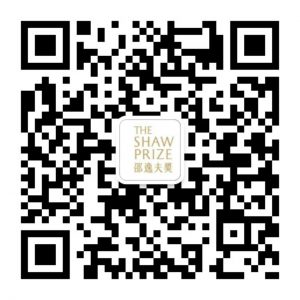以表彰他對現代數理統計學的深遠貢獻﹕他開創了在有噪聲情況的最優統計估計算法;而他又建立了在大數據中實現稀疏表示和復原的高效率技巧。
2013年度邵逸夫數學科學獎授予大衛・多諾霍,他是美國史丹福大學的 Anne T and Robert M Bass 人文學講座教授和統計學教授。他對現代數理統計學作出了深遠的貢獻:他開創了在有噪聲情況的最優統計估計算法;而他又建立了在大數據中實現稀疏表示和復原的高效率技巧。
在過去的半個世紀,計算技術出現了戲劇性的進步,給數理統計學的理論和應用帶來了根本性的新挑戰。大衛・多諾霍在這個領域舉足輕重,他開發了新穎的數學和統計工具,以處理高維大型數據、噪聲污染數據等問題。他以嚴格數學分析為根基,建立了快速、高效且通常是最優的算法。
For more than two decades David Donoho has been a leading figure in mathematical statistics. His introduction of novel mathematical tools and ideas has helped shape both the theoretical and applied sides of modern statistics. His work is characterized by the development of fast computational algorithms together with rigorous mathematical analysis for a wide range of statistical and engineering problems.
A central problem in statistics is to devise optimal and efficient methods for estimating (possibly non-smooth) functions based on observed data which has been polluted by (often unknown) noise. Optimality here means that, as the sample size increases, the error in the estimation should decrease as fast as that for an optimal interpolation of the underlying function. The widely used least square regression method is known to be non-optimal for many classes of functions and noise that are encountered in important applications, for example non-smooth functions and non-Gaussian noise. Together with Iain Johnstone, Donoho developed provably almost optimal (that is, up to a factor of a power of the logarithm of the sample size) algorithms for function estimation in wavelet bases. Their “soft thresholding” algorithm is now one of the most widely used algorithms in statistical applications.
